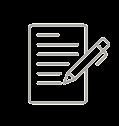Curriculum overview for history




Intent
The history curriculum at Oakfield has been shaped to inspire our children to want to know more about the past and how it has shaped the world today. Our teaching ensures that pupils have a secure knowledge and understanding of significant people, events, and contexts from a range of historical periods and of historical concepts and processes. Oakfield pupils learn how to think critically about history, use historical evidence to explain and support their thinking and ask questions to deepen their understanding. The content of our history curriculum has been selected to reflect the school’s context. It gives pupils the opportunity to learn about significant people and events in a local, British and world context and supports an increase in cultural capital.

The sequencing of the history curriculum has been carefully planned to allow pupils to build on prior learning and make connections both within history and across other subjects, ensuring that pupils know more and remember more. History is taught throughout the year and has particular focus in the autumn term, when it is closely linked to the texts selected for the school’s book-led curriculum.
Threshold concepts
Investigate and interpret the past
This concept involves understanding that our understanding of the past comes from an interpretation of the available evidence.

Build an overview of world history
This concept involves an appreciation of the characteristic features of the past and an understanding that life is different for different sections of society.



Understand chronology
This concept involves an understanding of how to chart the passing of time and how some aspects of history studied were happening at similar times in different places.


Communicate historically
This concept involves using historical vocabulary and techniques to convey information about the past.
Nursery

What happens on my birthday? Can you remember…? (recent life events and holidays) What stories do grown-ups remember from when they were little?
Reception How have I changed since I was a baby?
Why do we wear different clothes at different times of the year? How has my local area changed?
Year 1
Significant people and events
What did Grace Darling do that made her famous and Travel and exploration
Why did the Titanic sink?
Titanic Culture and pastimes
What was special about the Globe theatre?
Travel and exploration
Why are Sir Hillary and Norgay still remembered today?
What did Isambard Kingdom Brunel do?
Society
Why did Nelson Mandela do to make sure that everybody in South Africa was treated the same?
Significant people and events
What did Howard Carter discover about Tutankhamun form his tomb?
Society
What changes took place during Queen Elizabeth II’s reign?
What happened at King Charles III’s coronation?
How was Elizabeth I different to Queen Elizabeth II?
Significant people and events/society
What was life like for children who lived in Victorian times?
Year 2
Significant people and events
What does Samuel Pepys and his diary tell us about the Great Fire of London?

What was the plague and how did it end?
Conflict
Why did Florence Nightingale go to Crimea?
Society
What did Emmaline Pankhurst want and how did she achieve it?
How did the work of Thomas Edison change lives?
Conflict
What was Martin Luther King’s dream?
Travel and exploration
What did Charles Darwin learn from his visit to the Galapagos islands?
Culture and pastimes
Can you use L.S Lowry’s paintings to describe life in Salford in the 1950s and 1960s?
Significant people and events


Can you explain why the invention of the internet has changed lives?
Travel and exploration
Why was Apollo 11 successful in reaching the Moon?
Year 3 Settlements
What do Stone Age settlements tell us about lives at this time?
Where did the Nepali people choose to settle and why?
Where did Romans choose to settle and why?
Year 4 Conflict
Why were the Vikings known as pirates?
How did hill forts protect the Bronze age to Iron age people?
How did the Ancient Egyptians prepare for war?
Year 5 Significant people and events

Why did Henry VIII have six wives?
Why was Alexander III of Macedon considered to be ‘great’?
How did propaganda encourage men to enlist in WW1?
Year 6 Significant people and events

Could Britain have won the war without Winston Churchill?
Did Charles Dickens paint an accurate picture of Victorian Britain?
What can we learn about the Incas from The First New Chronicle and Good Government?
Significant people and events
How did the first monarch change Nepal?
Was the Stone Age a peaceful time in history?
What changes did Julius Caesar bring to Rome?
Significant people and events


What does the grave of the Amesbury archer tell us about his life?
How did Erik the Red discover Greenland?
How does Howard’s Carter’s discovery help us to understand Ancient Egyptian burial traditions?
Beliefs
What does the site of Stonehenge tell us about beliefs?
How were Roman and Nepali Gods worshipped?
Beliefs
What did the Ancient Egyptians believe about the afterlife? How did religious beliefs affect the daily lives of the Viking and Iron age people?
Society
How did WWI change women’s role in society?
Would Henry VIII have wanted a democratic society like Ancient Greece?
Culture and pastimes
How did football unite the troops and the enemy in WW1? How was competitive sport encouraged in both Ancient Greek and Tudor society?
Travel and exploration
Why was Mary Kingsley considered to be an inspirational explorer?
What similarities are there between the motives of the Spanish and Nazis when invading other countries?
Culture and pastimes
How did Inca music change after the Spanish invasion? How did music enhance lives during the reign of Queen Victoria and WW2?
Lesson and task design
Links to prior learning and retrieval practice





Enquiry question
Introduce and reinforce key historical vocabulary
Investigate and interpret evidence
Answer the enquiry question, using the evidence and relevant historical vocabulary
The Nature of Thinking

The Nature of Thinking supports our task design within different year groups
Year 1, 3 and 5 focus on the basic Years 2, 4 and 6 progress to advancing and deepening
Basic Advancing Deepening
Name
Describe Follow instructions or methods
Complete Recall
Observe Use
Match Report
Measure List
Illustrate Label

Recognise Tell Repeat Arrange

Define
Memorise
Calculate Recite
Draw recall
Apply skills to solve problems
Explain methods
Classify
Infer Categorise Identify patterns
Organise
Modify Predict Interpret Summarise
Estimate Compare Use Experiment
Demonstrate Practise
Show Arrange
Point out Graph
Separate
Solve non-routine problems
Appraise Explain concepts
Hypothesise
Investigate Cite evidence Design

Create Prove Judge Recommend Justify
Generalise
Propose Discover Arrange Rate
Evaluate Revise
Conclude Formulate Construct Develop Connect
Prioritise
